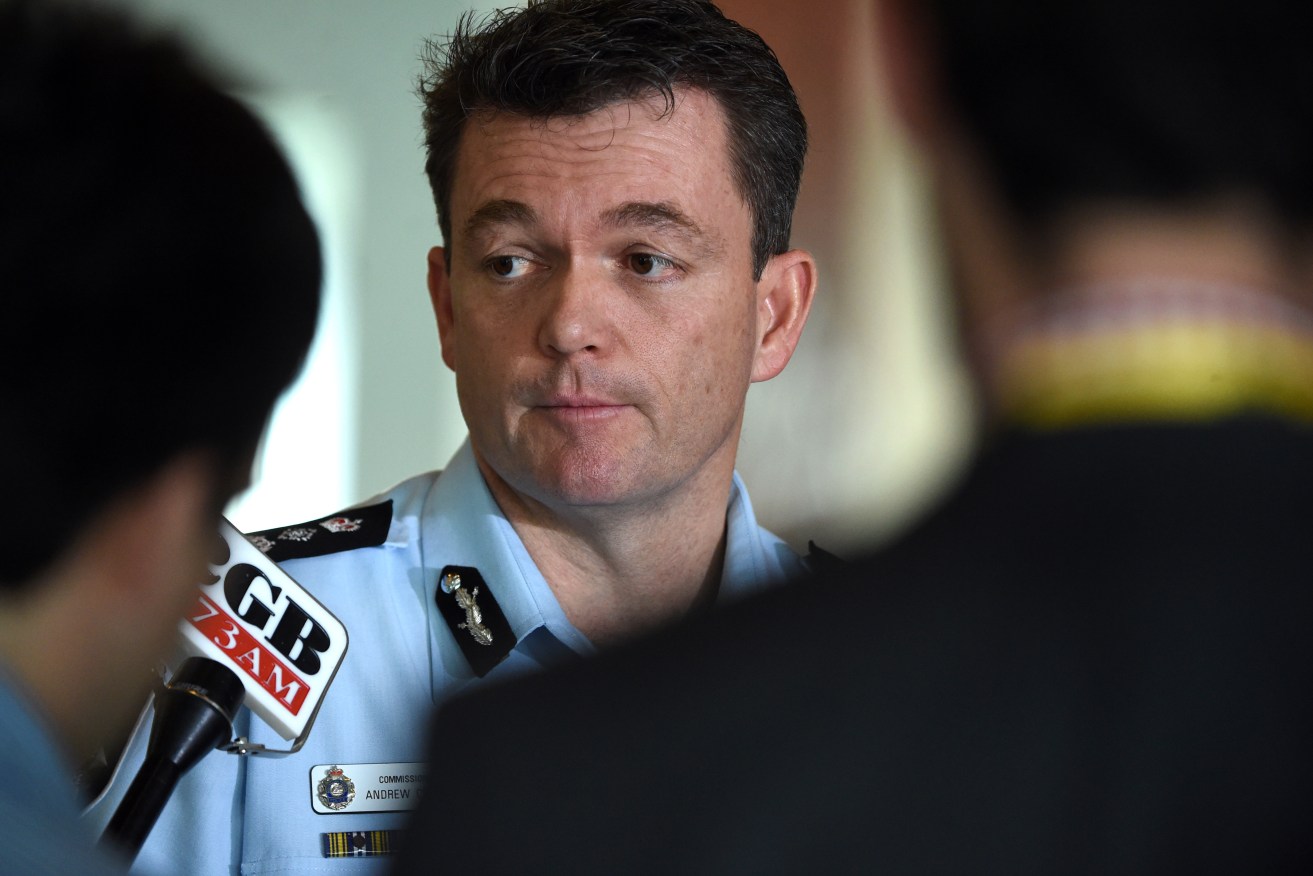AFP denies political bias in raid on Labor
Ongoing leaks of confidential NBN documents pushed Australian Federal Police to raid a Labor senator’s office and a staffer’s home, not political interference, its boss says.

Australian Federal Police Commissioner Andrew Colvin. Photo: AAP/Mick Tsikas
Commissioner Andrew Colvin defended his law enforcement agency after Labor challenged the government to say what it knew about the search operations in Melbourne two weeks into a close race between the major parties leading up to the July 2 federal election.
Documents seized during the raids had to be sealed after their holders claimed parliamentary privilege, meaning police are unlikely to be able to examine them for weeks.
“There has been no influence, no influence, on the AFP in the conduct of this investigation,” AFP Commissioner Andrew Colvin said on Friday.
NBN Co – the government owned builder of the national broadband network – had in December asked the AFP to investigate the leaking of confidential documents under a possible breach of commonwealth anti-disclosure laws.
Colvin said the timing of the raids was determined by investigation’s progress, and the fact that the leak had continued.
“We believe that the offending has been ongoing throughout,” he said.
“The timing is completely determined by the AFP, it’s determined by the status and the progress of the investigation, not by any external factors and not by any government influence.”
The search of Senator Stephen Conroy’s Melbourne office and the Brunswick home of a Labor staffer continued until 5am on Friday.
Officers also interviewed a number of people at NBN Co’s headquarters in Sydney.
The AFP maintains the government was only told about the investigation shortly after the raids began on Thursday night.
Opposition Leader Bill Shorten was briefed “as a matter of courtesy” and Conroy alerted.
“I want to be clear: we have acted independently here from government and we have at all times advised the relevant parties as to the nature and conduct of this investigation,” Colvin said.
But now AFP investigators can’t study the documents seized at the Senator’s Commonwealth parliamentary office and the staffer’s home because of claims of parliamentary privilege, which protects the activities of MPs.
The sealed documents will be lodged in the Senate and parliament will determine if privilege is afforded.
Asked if AFP officers saw sensitive election campaign material during their search, Colvin said what police saw or did not see was irrelevant as they were looking for documents specified in the search warrants.
Labor frontbencher Anthony Albanese said it was “quite extraordinary” the AFP didn’t leave the staffer’s home until 5am on Friday and the media was tipped off in advance.
But Colvin said the time taken was often out of police control as the property occupiers sought legal advice.
Suggestions of political bias and media tip-offs have now been referred to the AFP professional standards branch by Colvin.
Colvin revealed the AFP was undertaking a number of investigations into leaks, some of which were not in the public domain.
“This matter was given no more or no less precedence or seriousness to any other matter,” he said.
Search warrants are also expected to be executed on a number of media outlets that published stories sourced to the leaked documents.
AAP




